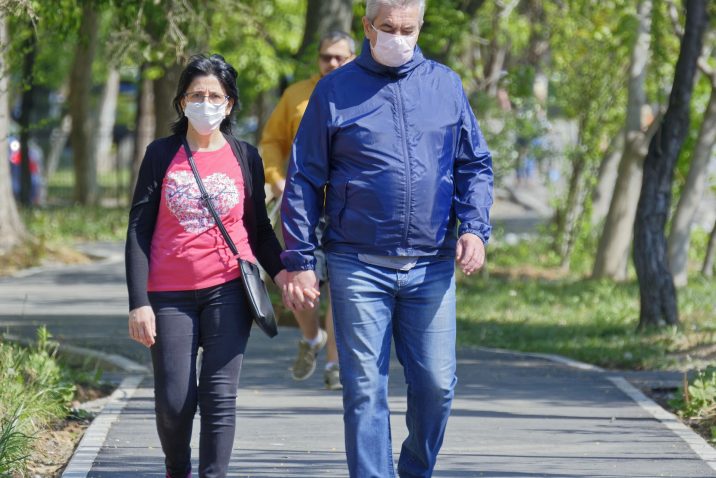As the number of COVID-19 cases continues to spike across the nation, researchers at Augusta University have launched a study to determine if nasal irrigation can reduce the symptoms in patients with the coronavirus. Patients 55 years old and over who receive a positive COVID-19 test result from Augusta University’s drive-thru specimen collection site at Annex II at 524 15th St. may be contacted to participate in the study.
The severity of COVID-19 has been correlated with the initial number of nasal viral particles, and with the amount of virus present in the nose in hospitalized patients. Recent research indicates that the differing burden of severe disease may be explained by the behavior of nasal ACE2 receptors. This study will see if flushing the viral particles out of the nose with a nasal irrigation solution after a positive test can reduce the chance of patients becoming severely ill.
The practice of flushing the nasal passages with boiled or distilled water with a saline solution and a surgical antimicrobial has long been recommended by ear, nose, and throat surgeons as a way to reduce sinus infections. Moreover, in countries where nasal rinsing, or lavage, is practiced routinely as a part of hygiene, COVID-19 case and fatality rates are lower.
“Several groups are studying nasal irrigation to prevent illness,” noted Dr. Amy Baxter, the lead investigator on this project and a clinical associate professor in the Department of Emergency Medicine at Augusta University. “If a vaccine isn’t 100% effective, even though we have treatments to lower the fatality rate, the lives of high-risk groups are impacted if they’re afraid to catch the disease.”
Patients will receive a device and materials to perform nasal irrigation, one of two additives that make the nasal irrigation slightly more alkaline or more acidic, and will be asked to do nasal irrigation twice a day for two weeks. They will give feedback for two more weeks on symptoms and any visits to the hospital.
This study is being carried out by faculty and staff in the Department of Emergency Medicine at Augusta University. Dr. Baxter is funded by the NIH National Institute on Drug Abuse for mechanical stimulation pain relief research. The department is grateful for donations and supplies from The Bernard and Anne Gray Donor Advised Fund; RhinoSystems, Inc.; NeilMed Pharmaceuticals, Inc.; and Pain Care Labs, a dba of MMJ Labs, which have helped to make the study possible.
 Augusta University
Augusta University




